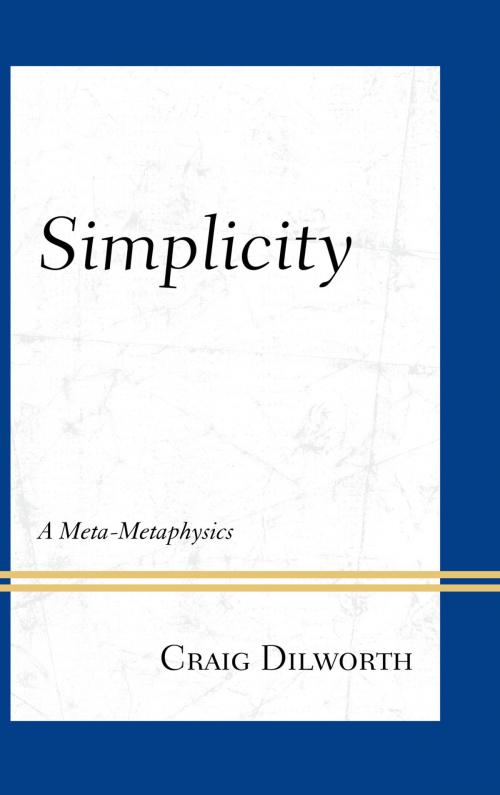Simplicity
A Meta-Metaphysics
Nonfiction, Religion & Spirituality, Philosophy, Metaphysics, Religious, Ethics & Moral Philosophy| Author: | Craig Dilworth | ISBN: | 9780739177242 |
| Publisher: | Lexington Books | Publication: | November 1, 2012 |
| Imprint: | Lexington Books | Language: | English |
| Author: | Craig Dilworth |
| ISBN: | 9780739177242 |
| Publisher: | Lexington Books |
| Publication: | November 1, 2012 |
| Imprint: | Lexington Books |
| Language: | English |
Simplicity affords a new way of thinking about philosophical matters. In this book, the dualistic, true/false approach of formal logic is replaced by a three-part basis for thought. This basis consists of the simplicity categories of reason: simplicity, complexity, and nothingness. The category of simplicity is paradoxical, that of complexity is unproblematic, and that of nothingness is self-contradictory. These categories are to be applied to ontological categories, such as those of substance, self, or causality, thereby providing a clarification of the philosophical issue in question. The notion of perspective is integral to the simplicity way of thinking. A particular entity − such as the self − may be conceived as simple in one perspective, while being complex or nothing in another. Combined with the categories of simplicity, the notion of perspective is used to reveal a type of conceptual conflict that differs from contradiction. So, for example, the simplicity way of thinking better represents the relation between competing scientific theories − such as the wave and particle theories of radiation − as a form of perspectival incompatibility, rather than contradiction. From this basis, the book moves on to the distinction between two forms of simplicity: analytic and synthetic, which can respectively be conceived of as a point, and as a whole. Again the notion of perspective is employed: what is analytically simple in one perspective may well be synthetically simple in another. The application of the simplicity way of thinking to philosophy (as well as to other areas, such as mathematics and physics), of which there are many examples in this book, enhances our understanding by illuminating the conceptual relations involved in intellectually problematic situations.
Simplicity affords a new way of thinking about philosophical matters. In this book, the dualistic, true/false approach of formal logic is replaced by a three-part basis for thought. This basis consists of the simplicity categories of reason: simplicity, complexity, and nothingness. The category of simplicity is paradoxical, that of complexity is unproblematic, and that of nothingness is self-contradictory. These categories are to be applied to ontological categories, such as those of substance, self, or causality, thereby providing a clarification of the philosophical issue in question. The notion of perspective is integral to the simplicity way of thinking. A particular entity − such as the self − may be conceived as simple in one perspective, while being complex or nothing in another. Combined with the categories of simplicity, the notion of perspective is used to reveal a type of conceptual conflict that differs from contradiction. So, for example, the simplicity way of thinking better represents the relation between competing scientific theories − such as the wave and particle theories of radiation − as a form of perspectival incompatibility, rather than contradiction. From this basis, the book moves on to the distinction between two forms of simplicity: analytic and synthetic, which can respectively be conceived of as a point, and as a whole. Again the notion of perspective is employed: what is analytically simple in one perspective may well be synthetically simple in another. The application of the simplicity way of thinking to philosophy (as well as to other areas, such as mathematics and physics), of which there are many examples in this book, enhances our understanding by illuminating the conceptual relations involved in intellectually problematic situations.















